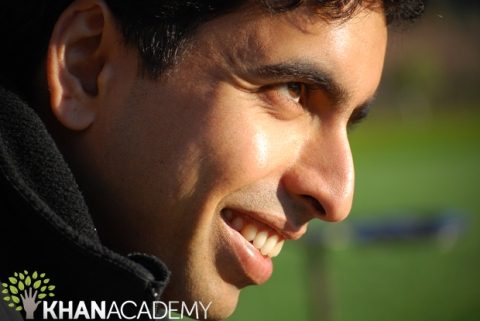Khan Academy has made an educational impact on the world that will be lasting.

This has had a greater impact than most developments in education in at least the last one hundred years. From a marketing perspective all these things are made possible by crowd sourcing and using free social media and networking tools. This is no small feat Salman Khan completed.
If we think back to some of the greatest innovations of time, we will find on the list the printing press, and then if we jump forward farther into the future, we’d find personal computers on the list, and a little further ahead, the tablet computer. Now we can have technology at our fingertips! With the Khan Academy, and other open educational models, anyone in the world, for free, can learn things from basic history lessons, to complex macroeconomic lessons, and all the way up to learning about human biology and cell structures.
What more can you ask for than free educational content when you are a student, or a lifelong learner, as many of us are, to use something like the Khan Academy to learn on demand.
Brought to market by remarkable content and crowdsourcing
How were all these things made possible by Sal Khan, originally as a solo person who started this whole thing as a way to help his niece who lived many miles away? It was made possible purely with a few things that are important in disrupting a marketplace. Number one, he had good intent and an idea, with a clear objective, which was to help others, in this case his niece. That was his marketplace.
Eventually, what happened next was an organic, natural phenomenon. As he listened to how others responded, he put this educational content out in public view, and learned, by listening, that there was a thirsty market. This was free market research usable to identify an open gap that needed to be filled. Amazingly enough as Khan identified this need, he was simply doing, tactically at this point, to bring to the table highly useful educational content to this market. His intent was to educate those, for free, with very helpful lessons and practices.
All of this was made possible by crowdsourcing and the free-market research he was able to do, by listening and responding to those who raised their hands and said, ‘thank you!’, with the help of social media and social networking. In this case Sal Khan, realizing an opportunity, and that his good intentions and mission could continue to be built upon, and the snowball effect is now three thousand videos later, thousands of hours of content, and growing, he has created something that is remarkable!
A mission changing the world, one lesson at a time
The Khan Academy’s mission is a goal of “changing education for the better by providing a free world-class education to anyone anywhere”. This sounds vaguely familiar, doesn’t it? Wikipedia completely disrupted the academic based knowledge bases called Encyclopedias, and Khan Academy is on a mission, with much influence to do the same with education.
This is a whole new level of disruptive innovation in education and the way we can teach, mentor, educate, coach. Clayton Christensen defines an innovation that is disruptive as, “allows a whole new population of consumers access to a product or service that was historically only accessible to consumers with a lot of money or a lot of skill”. That phraseology applies to the business world, however, can apply in this case. Sure, we have public education systems, private educational institutions etc., and each innovate and develop over time, but what we are on the cusp of is a larger thing, a more open and connected world.
Khan Academy and others such as TED Education, Paul Andersen, MITx, and iTunes U (no longer active), are innovating the way education is delivered and are overturning the traditional way we think of learning. Plato can remind us that learning and knowledge is beautiful. “The object of education is to teach us love of beauty.” – Plato, 427 – 347 B.C.
(Photo credit: Khan Academy)